Unsure of which city has the most to offer you in your college years? Aparna Sundaresan rounds up some student favourites and analyses their student-friendliness
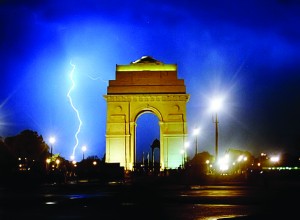
Delhi
Home to: St. Stephen’s College, Jawaharlal Nehru University, Jamia Milia Islamia University
Vibe: India’s capital is well-developed with wide open spaces and clean roads in the main city. Progressive due to its rich art, literature and culture scene. Relaxed but not lazy.
People: Loud and outspoken which may be perceived as rude. Taxi and auto drivers tend to get aggressive. Otherwise, people in general can be friendly when approached politely. The young are status and brand conscious.
Entertainment: Delhi is known for its markets. The markets are all-encompassing, covering shopping, eating and sometimes even cinema-watching. As India’s cultural hub, there are plenty of art galleries, theatres and culture-specific restaurants like Japanese restaurants, Italian eateries, Korean restaurants, etc. Nightlife is alive and commendable with numerous pubs, bars and clubs that remain open until 1 am (some even longer). Many pubs also allow couples only (as opposed to only men or male groups) so that women can feel comfortable.
Cost of living: While cheaper than Mumbai, at least in rent prices, public transport is expensive. It is advisable to travel by the metro train as they are cheap. Besides, Delhi buses are carelessly driven and have been involved in several accidents. Restaurants can be very expensive, but street-side stalls and eateries are cheap and satisfying.
Safety: Delhi is notorious for its crimes against women. There have been reports of rape, inappropriate touching, groping and lewd comments aimed at women in public in broad daylight, as a result of which women prefer travelling in private vehicles and staying indoors past sunset, stepping out only in the company of male friends.
Overall grade: B+
Student opinion: “Delhi is a beautifully planned city with lots of open spaces and parks all around, yet at the same time it has preserved its ancient heritage. It is interesting to see an amalgamation of people from all over the world converging here. However, the distances are mind boggling and secondly, the safety factor is a big concern, especially for women. And there are too many hot spots in the city! Starting from north Delhi, there is Karim’s near Jama Masjid. Dilli Haat is a great place to try out cuisines from all Indian states. Cannaught Place has a never ending circle of shopping and great eateries like Wengers and Keventers.” –Varuna Shunglu, LLB student, Delhi University

Ahmedabad
Home to: IIM Ahmedabad, Mudra Institute of Communications Ahmedabad (MICA), National Institute of Design
Vibe: Though replete with medieval structures, Ahmedabad is a leading mega city. Quiet city with wide roads. Hot and dry. Developed infrastructure. Travel is quick and traffic snarls are infrequent.
People: Friendly, hospitable people. Food-lovers who love to eat and love to serve Gujarati food, but are not very open to other cuisines.
Entertainment: Being a gastronomic paradise, there are restaurants, eateries and food stalls almost everywhere. Most of the cuisine is vegetarian. Nightlife is almost non-existent, but there are day clubs that are open to members for recreational activities and food. Alcohol is prohibited in Gujarat, so all drinking is strictly done in private. Ahmedabad’s drive-in theatre is a huge draw. Malls are coming up in a big way.
Cost of living: Comparable to Tier 1 metros in most aspects. Public transport is expensive, so most people own 2-wheelers. The autos don’t have metres, so cheating is rampant. Local food is quite cheap, especially at road-side stalls. Rent rates are low.
Safety: For a large city, the crime rate is low. Ahmedabad was declared the best mega city to live in by market research company IMRB in December 2011.
Overall grade: A
Student opinion: “The best thing about Ahmedabad is that eating out can be extremely cheap. To enjoy a good meal you don’t have to spend a bomb. However, the absence of a night life is extremely stark with the city shutting down by 10. If your campus is far away from the main city then rickshaws become a huge expense. The best entertainment spots in the city are Law Garden for street shopping and chaat, Alpha One mall for when the pocket money comes in, Buttercup and Souq to satisfy any cupcake or Middle Eastern food cravings, Batyar Galli and Manik Chowk for street food and the nearby not-so-dry zones of Diu and Udaipur.” –Reshma Harikumar, PGDM-C student, MICA
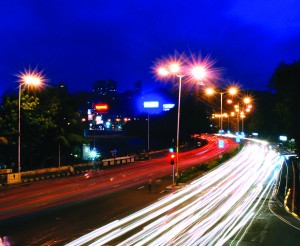
Mumbai
Home to: St. Xavier’s College, S.P. Jain Institute of Management and Research, Tata Institute of Social Sciences (TISS)
Vibe: India’s insomniac city, awake and throbbing with life at all times. Busy, entrepreneurial and enterprising. Cosmopolitan, progressive and open-minded, but campus life is close to nil as most colleges are just a building.
People: Mind their own business and are not intrusive, which may be perceived as arrogance, but they are actually friendly. Although Hindi is understood and spoken by all, public servants (police officers, government officials, etc.) may not respond until spoken to in Marathi.
Entertainment: Downtown Mumbai, or just ‘town’, is home to museums, parks, gardens, zoos, historical edifices and a theatre or two. Suburban Mumbai is the real home to theatres, malls, cinemas and activity spots for mini golfing, rock climbing, etc. Restaurants are plenty, from luxury to budget eateries, but the real champion are the street stalls for chaat and famous street food like pav bhaji and vada pav. Pubs, bars and nightclubs are many, but sadly, for a city that never sleeps, most shut by 1:30 am. Mumbai’s beaches are also pitiful; the more tolerable ones are in the outskirts of Palghar and Alibagh.
Cost of living: High, but cheaper than Bangalore. Rent can be exorbitant. Paying guest and rent share flats are more popular options. Buses are cheap and well-connected. The local trains are cheaper than buses and are Mumbai’s lifeline. Autos and taxis are expensive but their drivers are by and large honest. Street-side stalls are cheap and serve good food. Restaurants tend to be costly, as do cinemas – especially multiplexes.
Safety: Has long known to be the safest metropolis for women owing to the city’s insomniac nature and a tradition of women going to work. However, crime rates are escalating owing to assaults against single women and senior citizens. It is advisable to be home well before midnight as after that time, most streets become desolate.
Overall grade: B+
Student opinion: “The thing I love most about Mumbai is its people. They are so helpful! When I had just arrived in the city, some friends and I got out on the wrong the side of a station, after-hours. A couple delivered us safely to a taxi cab. The thing I find most cumbersome, to the point of hating, is the city’s vast distances. That one needs to schedule an extra hour or two just for travel really irks me. Being a foodie and shopaholic, Mumbai has been a haven for me! Although there are many places I love, the one place which is my favourite and where I have spent every vacation is Pheonix Mills! They have everything I love: a shopping haven and good food!” –Nishtha Khetani, BMM student, Jai Hind College
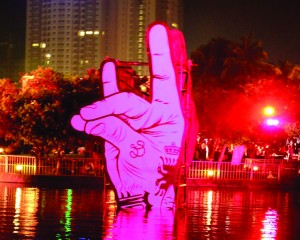
Pune
Home to: Symbiosis International University, Fergusson College, Maharasthra Institute of Technology (MIT)
Vibe: Youthful, dynamic and vibrant due to its large student and young, working population. Maharashtra’s cultural capital. However, traffic is indisciplined and driving is a nightmare.
People: Mild-mannered and reasonably friendly. May come across frosty at times. Cosmopolitan population, so Hindi is understood by all.
Entertainment: Plenty of museums. Nature-based attractions are several: caves, water parks, trekking routes, bird-watching sites, etc. Lots of budget restaurants. Plenty of cafes, pubs, bars and nightclubs. Weekend getaway towns of Khandala and Lonavala are nearby. Of late, Pune has become the choice of venue for music festivals and touring international bands.
Cost of living: Cheaper than its neighbouring city, Mumbai, but public transport is only marginally cheaper and the bus network is poor; has a large volume of 2-wheelers. Rent is slightly higher than other cities listed here, but manageable if shared.
Safety: By and large safe city. Violent crimes are rare, but petty theft is more common. Mugging occurs on the outskirts, especially on highways. If your vehicle breaks down at night, it is recommended you stay inside the vehicle and call for help.
Overall grade: A
Student opinion: “Amazing climate, a predominant youth population and the overall vibe of Pune is quite positive for students. But there are a few downsides too, like the public transport which is pretty substandard making it mandatory to own a vehicle and that’s not very impressive with the high fuel prices. Another pitiable thing is that one can expect rickshaw drivers to boss around often. I have a pretty positive opinion about the city compared to Mumbai. Plus I know a number of restaurants/hang out places that are open post-midnight which makes it very convenient.” –Ernold Thompson, BE Mechanical Engineering student, MIT
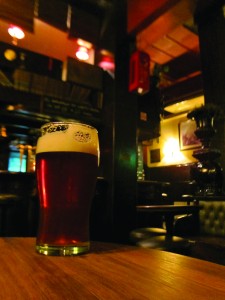
Bangalore
Home to: Christ College, Presidency College, Indian Institute of Science (IISc)
Vibe: Cosmopolitan and progressive with a smattering of pride in Kannada culture and traditions. Has a moderate climate which makes for pleasant days most of the year. Silicon Valley of India. Unfortunately, has terrible traffic which might improve after the metro is complete.
People: Friendly most of the times and will converse in Hindi and English as well (at times even Marathi and Tamil). Auto drivers can be rough. Some areas are staunchly Kannada, so people there will not speak any other language. Beneficial to know basic Kannada.
Entertainment: Shopping malls are commonplace with the usual options of movies, international restaurants and mid-range to luxury shopping. Once the Pub City of India, Bangalore still has several excellent pubs, bars and clubs, but are forced to shut by 11:30 pm due to Police action. Bangalore’s parks are famous, notably Brindavan Gardens and Lalbagh. Bangalore is the choice of destination for international music acts and touring bands.
Cost of living: High. Rent prices have increased because of influx of migrants. Reserve Bank of India’s Consumer Price Index (CPI) shows that Bangalore is the costliest Indian city to live in. Grocery prices are high (1 litre of milk can cost as much as Rs 30), as are local bus fares (as much as Rs 20 for one way). Auto drivers are known to fleece passengers in spite of metered fares.
Safety: Safe during the day. Nights do not inspire confidence in the locals as the city sleeps by midnight. Cops are stationed outside pubs to ferret exiting women into autos to go home. Lower income areas can get rough after sunset.
Overall grade: B+
Student opinion: “I like Bangalore’s climate and its girls! Unfortunately, traffic is heavy and it takes a while to reach a place. Head to Garuda Mall, the pubs at Brigade Road, and MG Road for good food. Barbeque Nation, Mainland China, California Pizza and Jimmy’s are some other great restaurants to eat.” –Sriram Iyer, BE Computer Science student, CMRIT College of Engineering
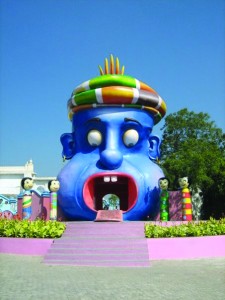
Hyderabad
Home to: Indian School of Business (ISB), BITS Pilani, Hyderabad Campus, English and Foreign Languages University (EFLU)
Vibe: Historical and dichotomous, straddling cultural symbols on one hand and modernity on the other. Meeting point of north and south India. Culturally rich and growing IT hub. However, plagued by heavy pollution and disorganised civic facilities.
People: Due to migration of young people from all over India for education and jobs, general attitudes are slowly becoming progressive. The old city is still conservative and expects young people to dress modestly. People are laidback and indifferent to deadlines and schedules. Urdu is widely spoken in addition to Telugu.
Entertainment: Architectural and historical attractions plenty: Char Minar, Golconda Fort, Qutb Shahi tombs, etc. Also, lots of impressive museums. Restaurants are many but the cuisine is limited. Few pubs and bars, but they stop serving drinks by 11 pm.
Cost of living: Comparatively lower than Tier 1 cities. While college and university fees may be higher, groceries, clothing, communication and entertainment costs are lower. Rent prices are reasonable. Beware of auto rickshaw drivers. Though the fare is metred, they might ignore the metre reading.
Safety: As with most cities in this article, staying out late at night in Hyderabad is not advisable, especially in the old city – communal tensions are prevalent there. Security is high in theatres and malls owing to past terrorist attacks in the city. Be careful in crowded areas as chain-snatching is common.
Overall grade: B
Student opinion: “Hyderabad is quite a student friendly city. The only sad part is that there are very limited options for street shopping. Most students after their college hang around in their canteen or campus till they are politely asked to get out. My friends and I go to a place called Lamakaan. It’s a trust house with its own canteen and holds a lot of plays, music nights and charity events in its courtyard. Other than that, college students are usually at a pani puri bandi or any chaat place.” –Neha Pandit, BCom student, St. Mary’s College
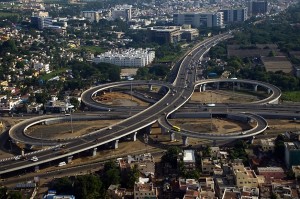
Chennai
Home to: Asian College of Journalism, Loyola College, Stella Maris College
Vibe: Compared to other Tier 1 cities, conservative and traditional. Growing IT hub, so is attracting young people from the rest of India which is contributing to a slow but steady progressive outlook.
People: Warm but proud and fiercely protective of the Tamil language and culture. Hindi is not spoken at all but English is understood by many. Chennaites are both orthodox and modern, a paradox unique to this city.
Entertainment: Chennai is steeped in the traditional arts, so there are plenty of theatres to watch classical dance and music. Beaches are popular, but tend to be dirty and crowded. There are also many architectural marvels in the form of temples, churches and old forts. There are numerous cinemas, most of which are cheaper than the cities listed here. Restaurants worth eating out are those that serve traditional south Indian cuisine, although there are plenty that serve international cuisine too. There are no pubs and bars as such because the only places that serve liquor are attached to hotels, as per government rules.
Cost of living: Cheaper than Bangalore and Hyderabad in most avenues, but alcohol is expensive owing to restrictions. Rent is low, even in the city centre. Buses are cheap but auto rickshaws are expensive because they do not run on metres and drivers fleece passengers. The cost of eating out varies: there are cheap restaurants that serve traditional food and up-scale eateries that serve continental meals.
Safety: Generally safe but petty theft (muggings, pickpocketing, etc.) are known to occur in crowded areas. Women are advised to dress modestly at these places. Do not display your wallet or large amounts of money anywhere in public.
Overall grade: B+
Student opinion: “I like the beaches in Chennai the best. What I don’t like is the traffic which delays travel. The pollution is also awful. And people throw garbage everywhere which is not cleaned up in a timely manner either. But there are some good things about Chennai for students. The malls are great and are popular with people. Express Avenue Mall is where a lot of students hang out. The beach is another hangout that students like to go to.” –Varshaa Kumar, BSc Psychology student, Ethiraj College.
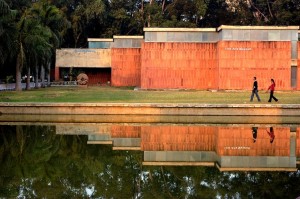
Chandigarh
Home to: Panjab University, Chandigarh College of Architecture, PEC University of Technology
Vibe: Modern and impressive on first glance. Relaxed, calm vibe. Clean streets and large gardens. Considered a ‘pensioner’s paradise’.
People: In true Punjabi tradition, if you’re nice to them, they’ll be nice to you. They like a leisurely, sedentary lifestyle. The young are fashion-conscious and ambitious.
Entertainment: Few museums that together cover several aspects from pre-historic artefacts to modern art. The Rock Garden is a popular attraction. Apart from these, the usual urban staples of cinemas and restaurants are present. Nightlife is near non-existent as celebrations outside end at 10 pm, but pubs at times stay open past that time for parties.
Cost of living: Cheaper than Delhi and much cheaper than Mumbai, especially in entertainment and rent prices. Paying guest living options are available easily at just Rs 5000 a month. Tickets for two in a movie theatre cost less than Rs 500, even the best seats. Public transport is cheap as the buses here cover the Tricity (Chandigarh, Mohali and Panchkula) within Rs 20. Autos run on metres, so charges are fair.
Safety: Crime rate relatively lower than other cities. However, pickpockets abound in busy streets. Late night travelling is not recommended, especially for women. Displaying your wallet in public increases chances of it getting nicked.
Overall grade: B+
Student opinion: “Chandigarh is true its name ‘The city beautiful’ in all aspects. One usually gets to see students from different states and countries in the city. If a girl can feel safe in India, it is in Chandigarh; one hardly gets to hear about any mishaps with students here. Even though it has few hang out places, they are all fun – Sukhna Lake, Panjab University campus and Mocha coffeehouses are popular. The city is very conveniently connected via bus, train and planes. The railway station and airport are at an hour’s distance away, so home is never too far!” –Monika, integrated BTech and MBA student, Panjab University



























